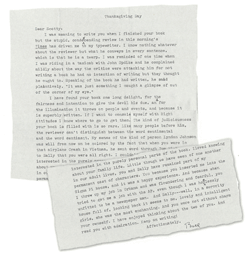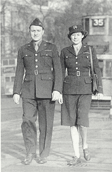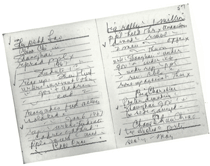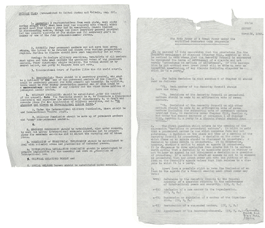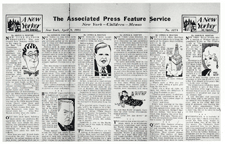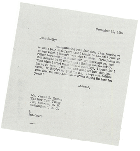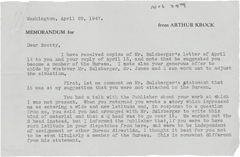
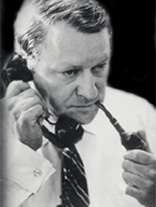

The Early Years
At the University of Illinois, Reston was still known as Scotty, the inevitable nickname he had acquired when he was first in elementary school in Dayton, Ohio. At Illinois, he had two great loves-golf, which he played at the championship level, and Sally Fulton. His marriage to Sally after her graduation formed a blue-ribbon, life-long partnership. She was, and is, loving, sophisticated, talented, and beautiful. He trusted her judgment more than any editor's about what he wrote, and he would wait anxiously for her reaction each morning when his column appeared. Together they traveled the world, navigated the ever-more-rarefied circles of success he achieved, and loved each other intensely.
It was at the University of Illinois where Reston's his interest in journalism deepened. He found a mentor in the person of Professor Fred Siebert, who encouraged him to pursue the profession and who served as a counselor and advisor even after he left the university.
Reston had been raised with the expectation that he make something of himself. After his graduation in 1932, he set out to do just that. He began as a sports reporter and columnist, and it was the chatty informality of that kind of writing that formed the pleasant, accessible tone that marked his chronicles of international diplomacy and American politics. He briefly abandoned journalism to become secretary to the Cincinnati Reds baseball club, with the aim of traveling to the big cities and to the newspapers in those cities. It was finally in New York, at the Associated Press, that he began his career in the big leagues. The AP sent him to London as a sportswriter just before World War II, and it was there that The New York Times, faced with the increasing demands of covering the coming conflict, hired him.
As the blitz began, Sally was sent home. Reston was briefly part of the lustrous journalistic crowd covering the war-Edward R. Murrow, Eric Severeid, William L. Shirer-but his career as a war corre- spondent was cut short by illness. When he arrived back in New York, the bright and charming young Reston, and his equally bright and charming wife Sally, were befriended by Times publisher Arthur Hays Sulzberger and his wife, Iphigene, the daughter of the founder of the modern New York Times.
It was Arthur Hays Sulzberger who sent Reston to Washington, where he began to cover diplomatic news. After the United States entered World War II, Reston wrote his first book, Prelude to Victory, in which he argued strenuously against American isolationism. The critic Clifton Fadiman called Reston "the Thomas Paine" of the day.

University Archives, University of Illinois at Urbana-Champaign
